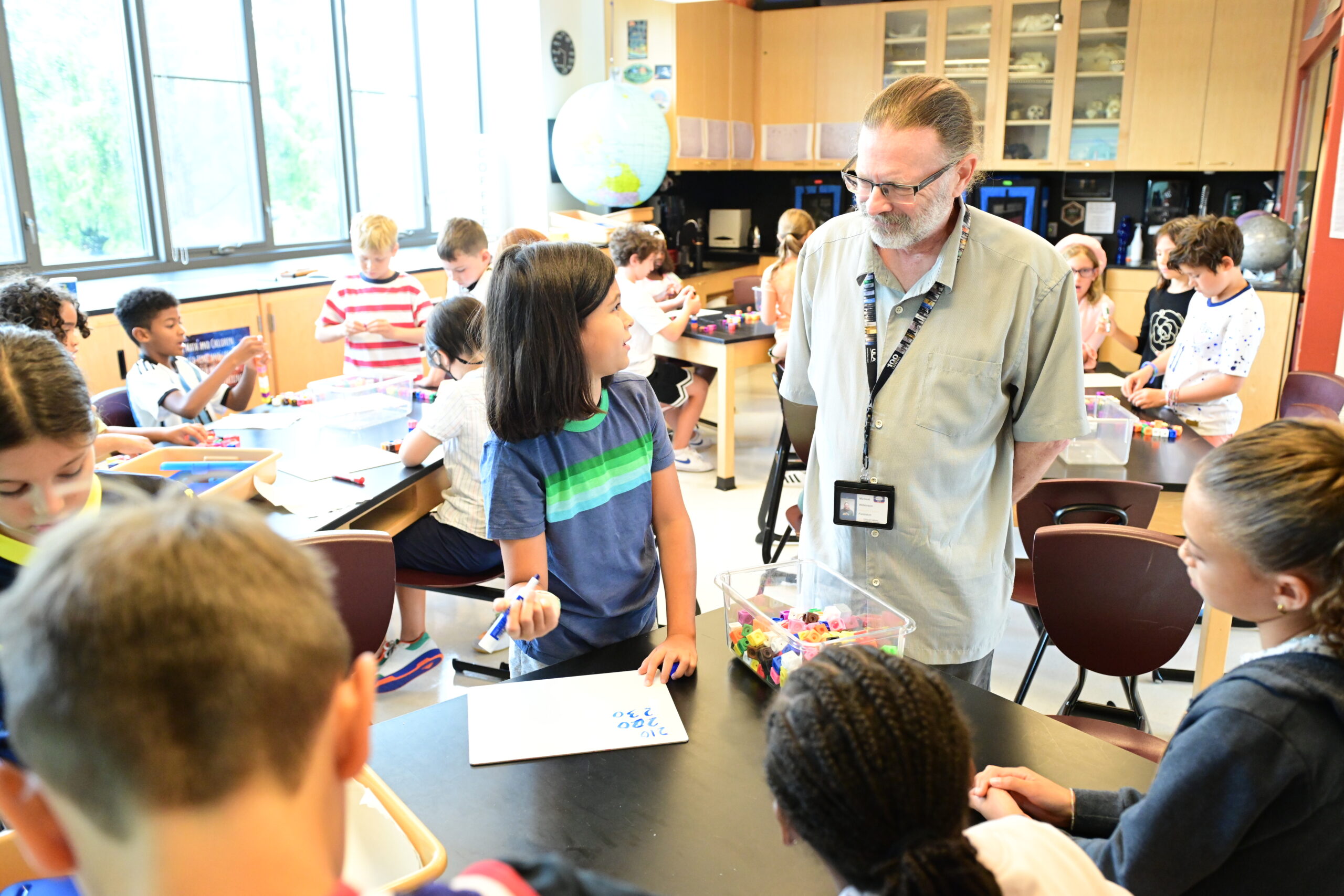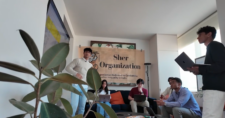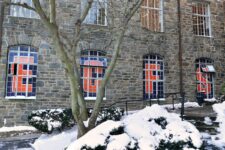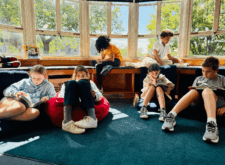This story was originally published in the May 2024 edition of the ECFS Reporter.
Our educational pedagogy emphasizes collaborative learning with the objective of helping students build empathy and the capacity to respect their surroundings and better understand the perspectives of others. We asked faculty from across all four divisions to share a bit about their favorite projects, units, and activities that foster community in their teaching spaces.
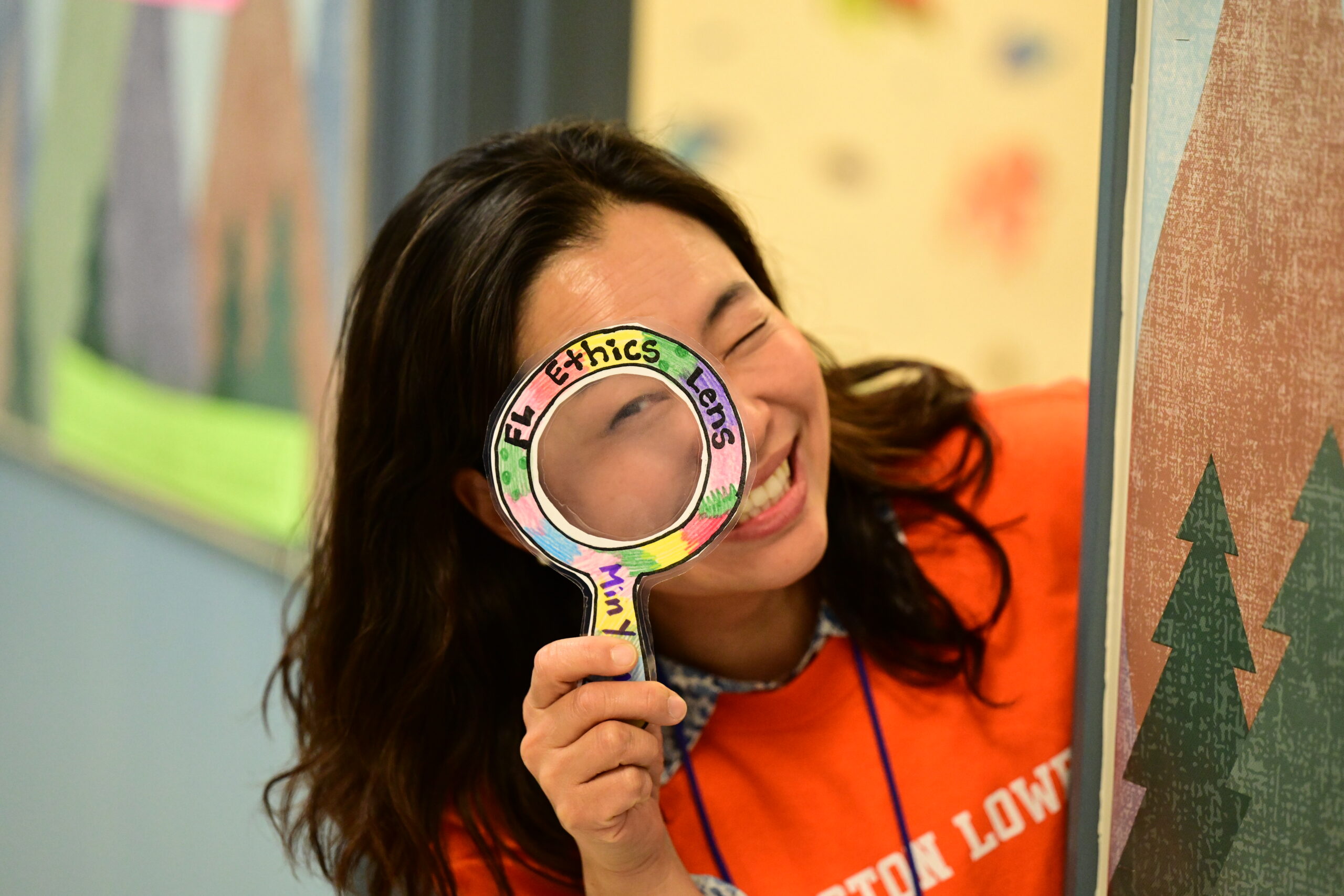
At the beginning of the year, we defined
ethics and discussed how to explore
the world through an “ethical lens.” This
adventure intertwined with our collaboration with the 2nd Grade, where we explored the personal narratives behind each student’s name. Inspired by Juana Martinez-Neal’s “Alma and How She Got Her Name,” we created our own name stories, engaging parents/guardians to unravel the meanings woven into students’ names. Students joyously shared their name tales and transformed them into vibrant posters. In this journey of self-discovery and community building, students discovered that our names not only define us, but also connect us in profound ways and enrich our shared experience.
— Min Young Song
Interim Ethics Teacher, Fieldston Lower
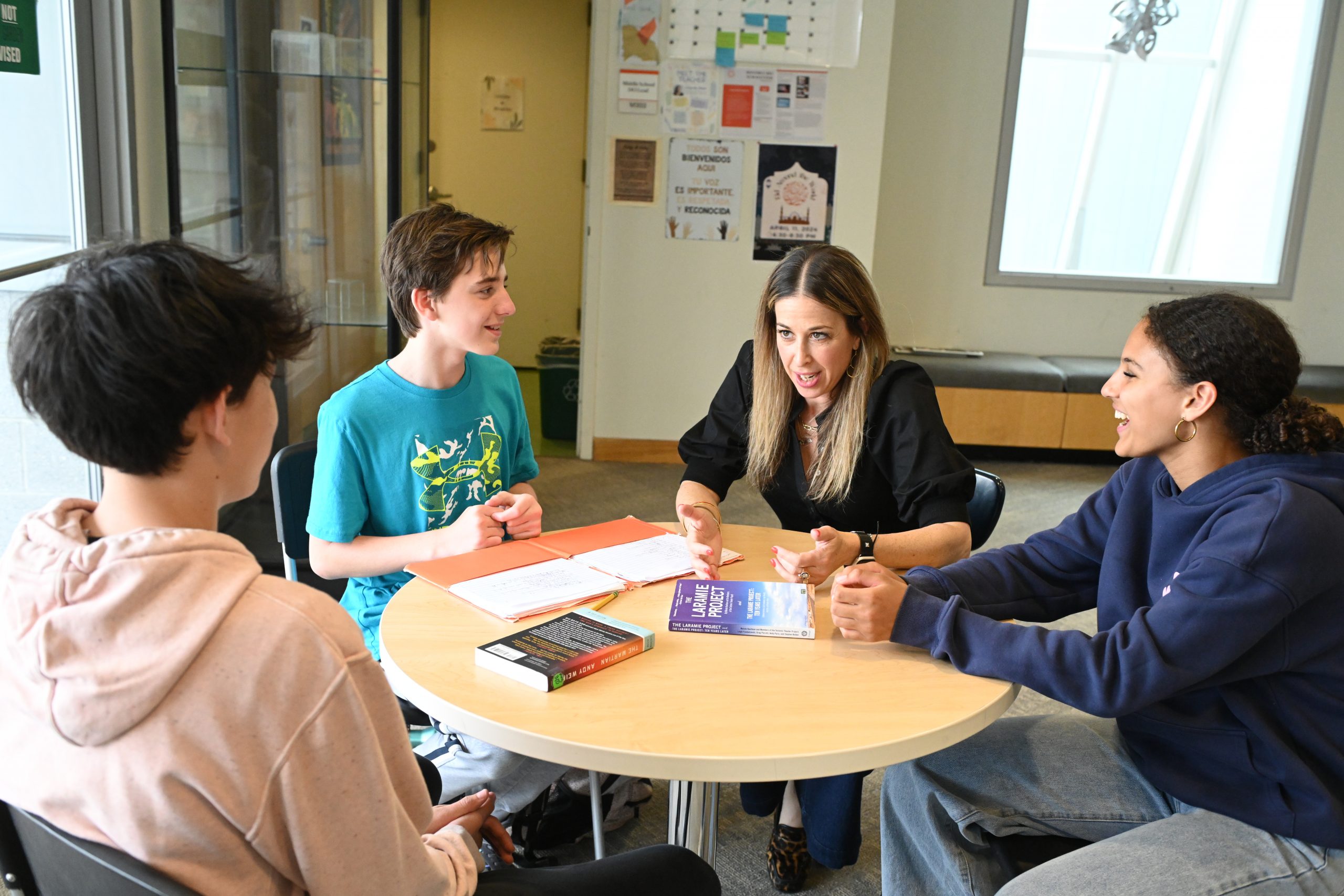
As students approach high school, they are challenged to look beyond their ECFS community and focus on how they can effect change on a wider scope. The 8th Grade Capstone Project asks each advisory to partner with organization members who are alumni and work with the organization to determine how the students can meaningfully contribute to their cause. This draws upon the many skills, capacities, and strategies that students have mastered in middle school.
After students collaborate to research their chosen organization, they create a short documentary film about what they’ve learned and how they will help. At the culmination of the project, alumni visit campus to learn more, and the students have a great time leading a campus tour! I love watching students get to know the alumni as they form relationships and make connections over shared experiences. The students’ excitement and enthusiasm as they engage with their organizations is amazing to see.
— Stephanie Behrens
Grade Level Coordinator and Science Teacher, Fieldston Middle
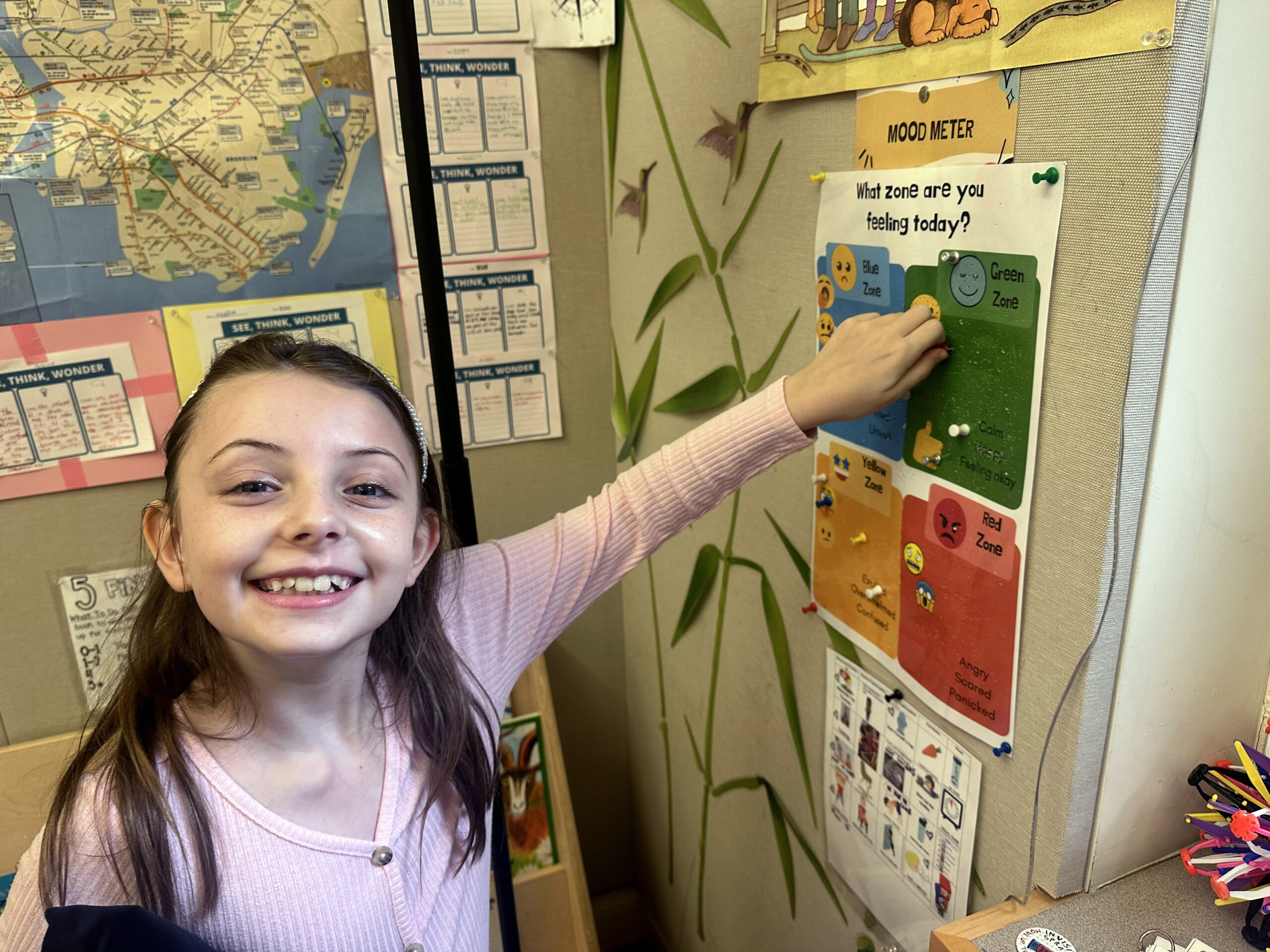
At the beginning of each year, my 2nd Grade class collaborates to define a set of classroom community norms, expectations, and routines. Each morning, we practice gratitude writing and place pushpins in one of the quadrants of our class mood meter. Then, in our morning meetings, students can share where they put their pins and why they put them there. Taking time every day to honor our community norms, be grateful, listen to each other, and share our joys and worries builds community in an authentic, deep, and natural way. Within weeks, the students are the stewards of this sacred morning time. They are brave, kind, and respectful as they bring their own unique experiences to our community, and the way they support their classmates and care for each other is magical.
— Radhika Hira
2nd Grade Head Teacher, Ethical Culture
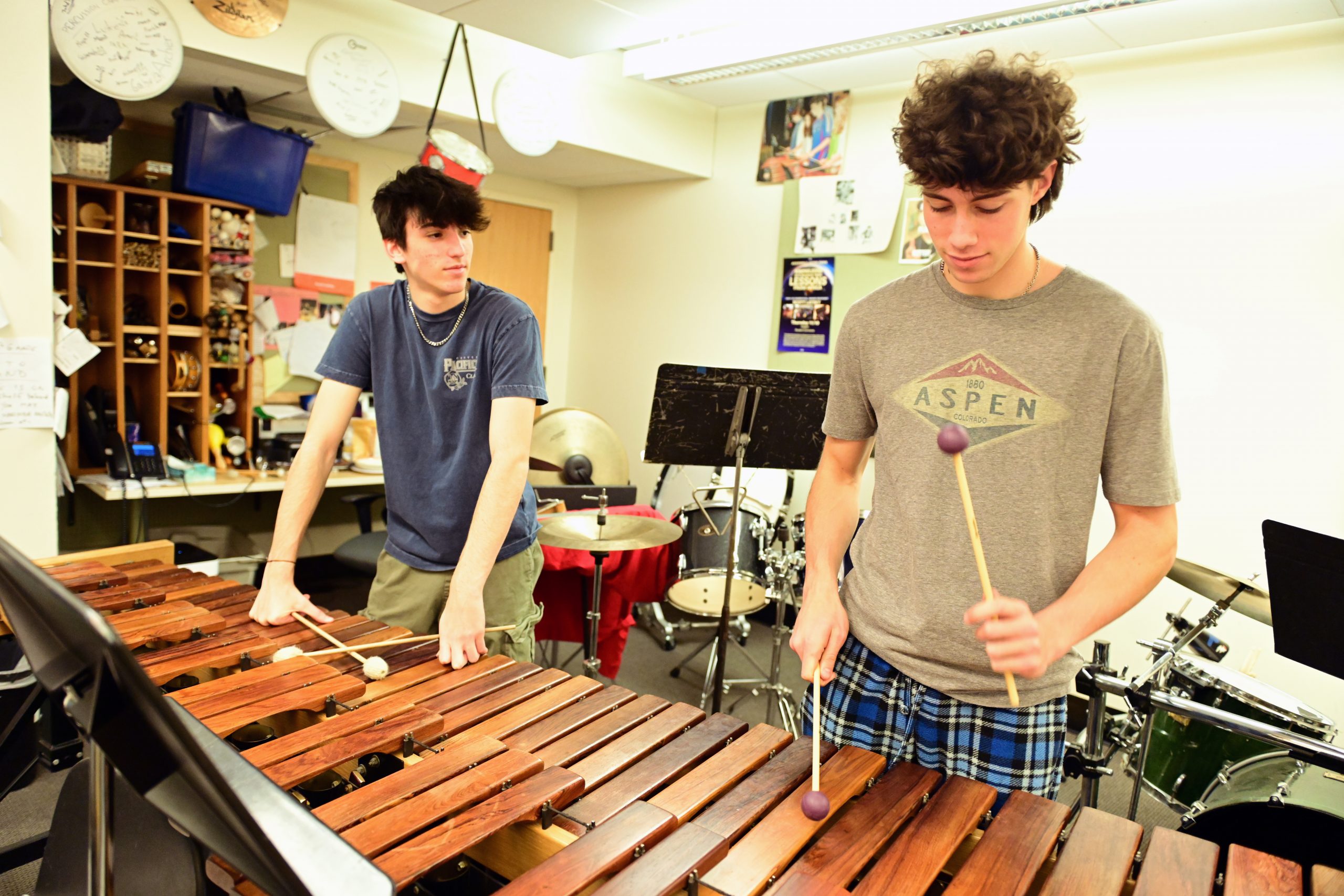
Playing music together is the embodiment of community-based learning. Students have to sync up perfectly with their peers, requiring a great deal of listening and nonverbal communication. At times, each member of the ensemble is playing a separate part, requiring careful listening to see how one person fits into the whole while simultaneously building independence and confidence. Sometimes a student leads by playing a melody that everyone knows. Other times a student is there for support and helps everyone stay grounded. These support roles can sometimes be easy parts technically, but they are important ones that the group needs to function, reminding us that community really is a living organism!
Creating music together takes these ideas to the next level. The current percussion classes are taking on a new challenge: composing a piece that they will then perform. Taking ownership of their work like this and having the agency to make important decisions about the outcome — there’s no better way to develop confidence in oneself and in the community.
— Scott Latzky Music Teacher, Fieldston Middle and Fieldston Upper
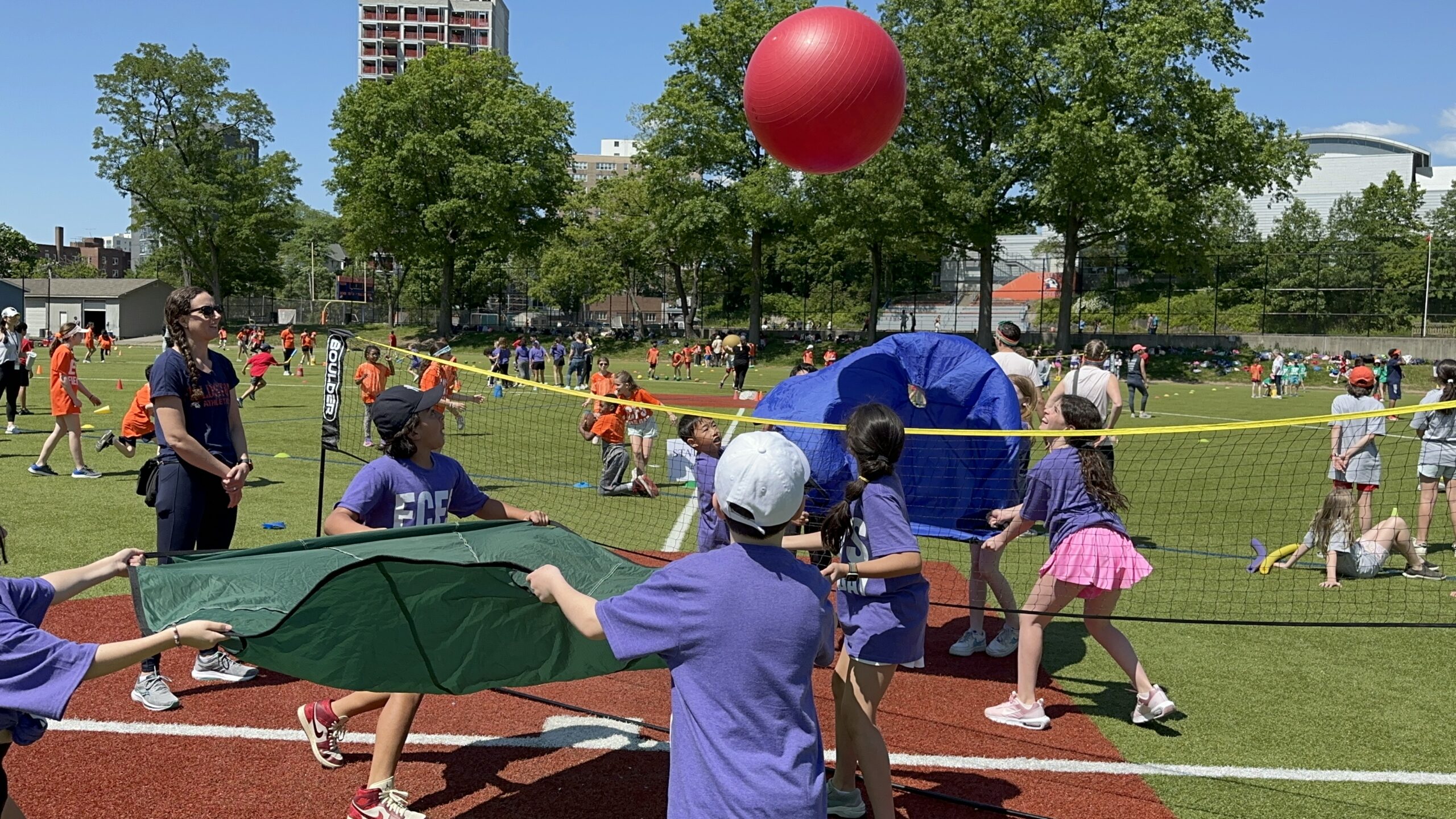
I firmly believe in the power of physical education when considering community building, and I strive to create an inclusive environment where every student feels they belong. The variety of games and activities at Field Day exemplifies our community spirit. In teams, students participate in various objective-based games with the assistance of the Ethical Culture faculty members who run each station. It is a joyous occasion that unites the entire community with laughter and fun.
— Kelton Cumberbatch
PE Teacher and Coordinator, Ethical Culture
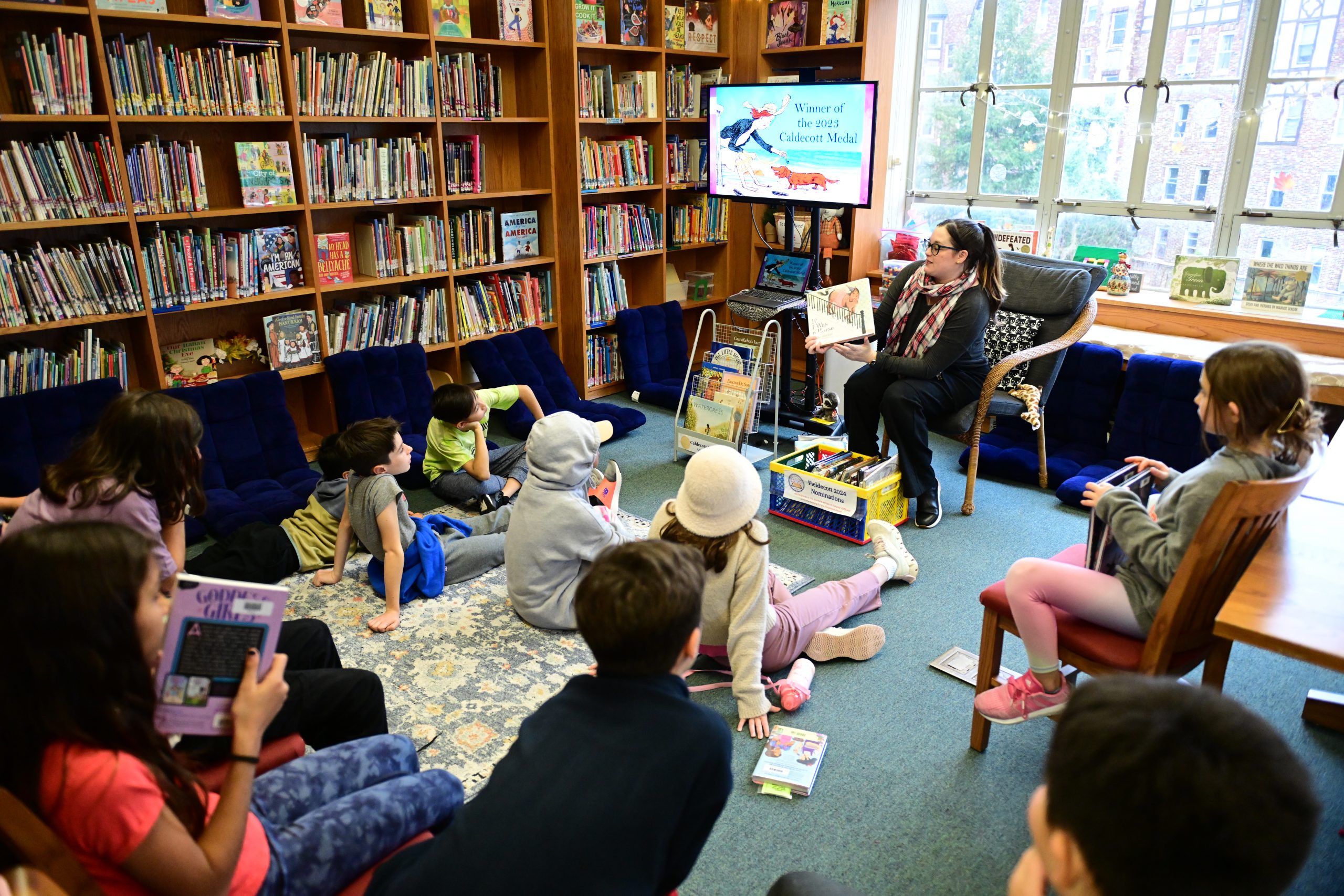
The Fieldecott is Fieldston Lower’s version of the prestigious Caldecott Award. Students in 3rd–5th Grade spend each January reading dozens of books; then they vote on their favorite book of the year. This year we started with a pool of 24 books, which got narrowed down every week until we had this year’s Fieldecott winner — “The Tree and River” by Aaron Becker, which beat Matthew Cordell’s “Evergreen” by only one vote! I have found students from different grades gathered around the Fieldecott hallway bulletin board, discussing and debating their favorites. I’ve even heard them chanting the titles of their favorite books during out time! Fieldston Lower is a truly extraordinary community, bound together by the love of a good story.
— Jessica Panek
3rd–5th Grade Librarian, Fieldston Lower
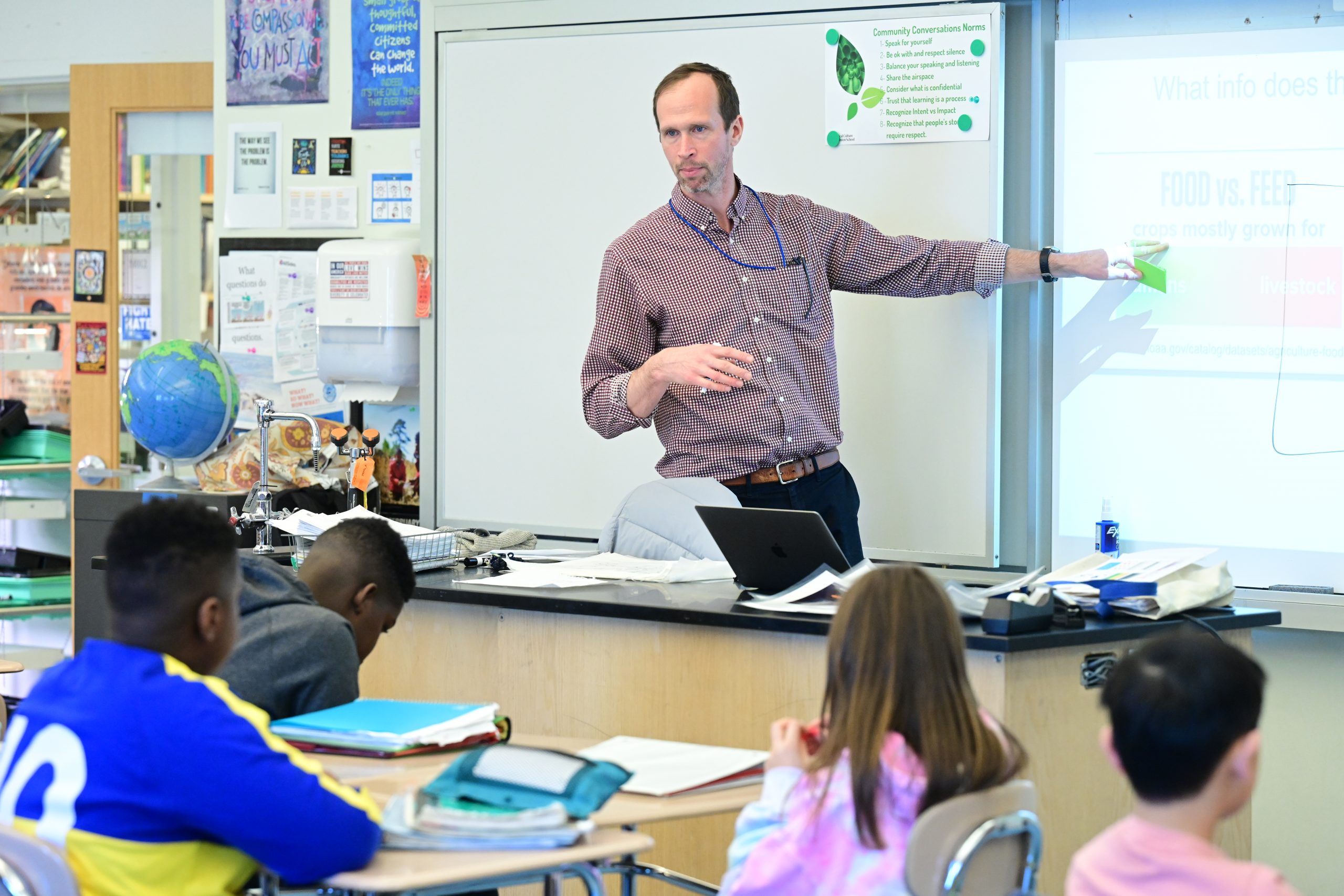
Group projects and labs that require students to work together over several days offer excellent opportunities to build community in Fieldston Middle’s science classrooms. This year, students conducted a long-term lab experiment in their 6th Grade Environmental Science class: growing basil plants and answering the question “What are the effects of an environmental issue on the growth of plants?” Teachers determined groups based on students’ interest in topics like the atmosphere’s influence on plants; then students designed the experiment together based on their exploration of the environmental issue.
This fosters community by giving students agency as they actively design experiments, assume responsibility for plant care and equipment usage, share the workload, and cultivate relationships with their group members that develop over time. Not to mention, they bond over the enjoyment of growing basil plants!
— Ben Horner
Science Department Chair, Fieldston Middle
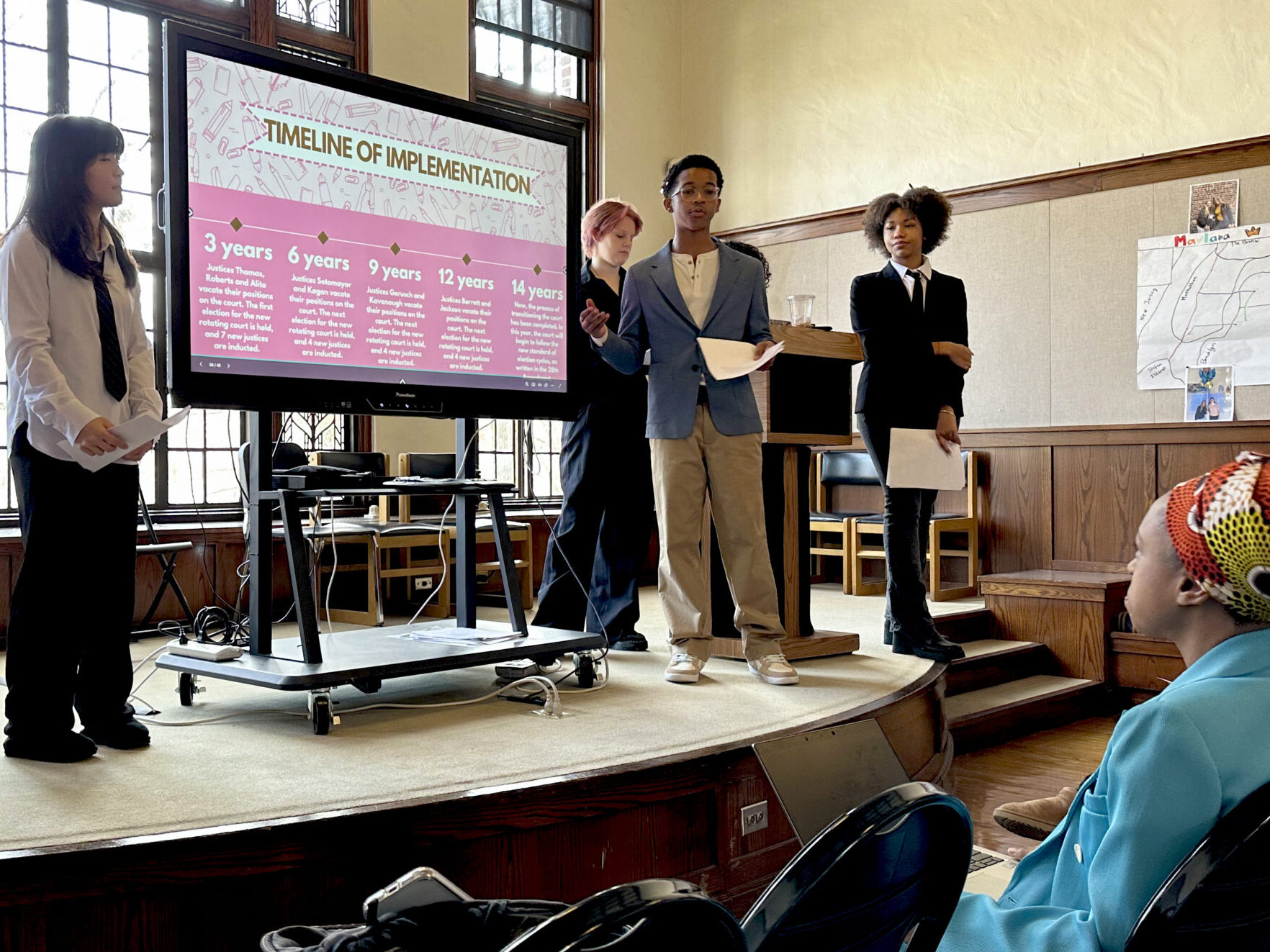
In 10th Grade Humanities, one of the projects requires students to present on a series of Supreme Court cases in which the court failed to uphold the rights of vulnerable populations and/or failed to uphold the individual rights of citizens guaranteed by the Constitution. We analyze Erwin Chemerinsky’s “The Case Against the Supreme Court,” which focuses on the Court’s challenges safeguarding minority rights in a democratic system where voting expresses majority rights. Students then work in groups to redesign the Supreme Court to avoid the flaws of the current judicial system, create a system that genuinely represents and is accountable to the people, and reflects the country’s evolving ethos. Students are encouraged to consider how SCOTUS decisions impact their generation. After each group presents their redesign as a constitutional amendment, the class holds a caucus to combine the best aspects of each proposal into a final proposition that all 28 students can agree on.
Students learn to think critically about the historical roots of our country’s issues, encouraging them to understand why things are the way they are and why it’s essential to work toward and fight for positive change. It helps them look at everything through an ethical lens, which is the driving force behind all our work as teachers at ECFS.
— Miriam Paterson
History Department Chair, Fieldston Upper
